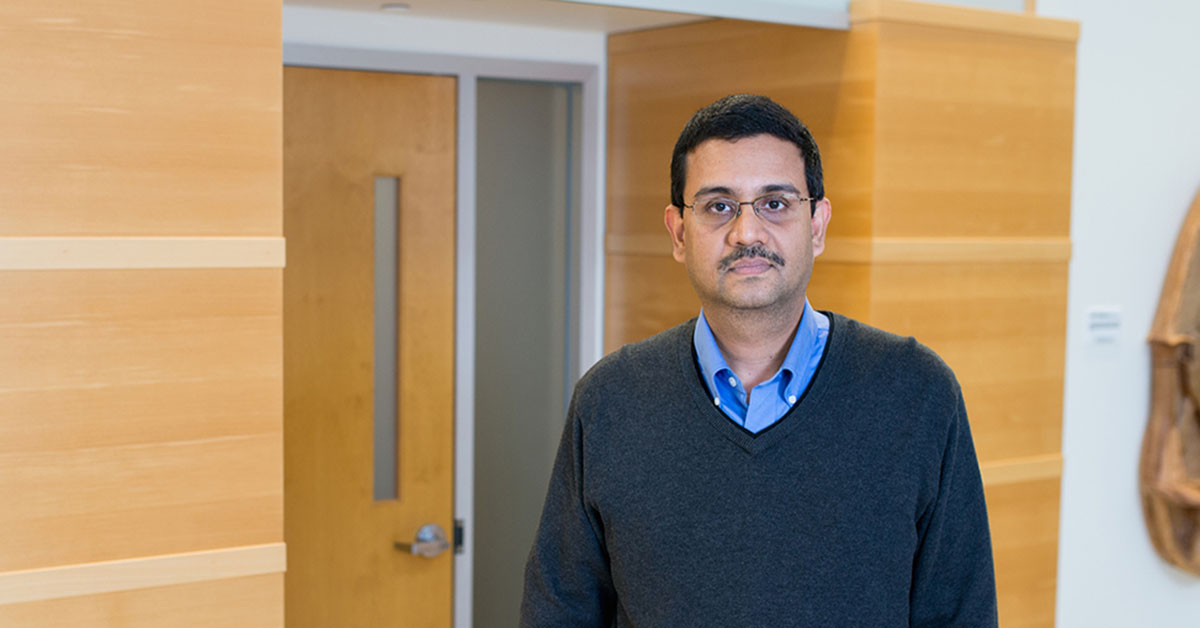
PHILADELPHIA (October 5, 2021)—In a recently published study, a researcher at Fox Chase Cancer Center outlined new methods for handling heterogeneous data types from large-scale studies. These studies generate genomic profiles with the goal of identifying subgroups of patients who may have a better prognosis or benefit from a particular treatment.
Genomic profiling is a process used to understand the way genes interact with each other and the environment of a specific individual. It can be used to develop new methods of monitoring, diagnosing, and preventing diseases—including cancer—by identifying specific genomic features that are unique to a subgroup of individuals with the disease. The number of such genomic markers of interest typically far outnumbers the subjects that can be followed up clinically.
“Our approach provides a unified framework for handling various types of genomic feature measurements,” said Karthik Devarajan, PhD, the study’s lead author and associate professor of population science in the Biostatistics and Bioinformatics Facility at Fox Chase.
“We developed a generalized algorithm that facilitates the delineation of tumor samples into homogeneous subgroups with similar genomic profiles which can, in turn, be linked to clinical outcomes. For instance, it can ultimately aid in determining which patients are likely to respond favorably to a new therapy.”
In order to fully comprehend the genomic profile of a tumor sample, it is often necessary in practice to measure and quantify diverse aspects of it. This is made possible by an array of genomic technologies that are currently available for profiling tumor samples.
Methods such as the ones developed by Devarajan are critical in predicting cancer outcomes, particularly because there are several challenges researchers face when using standard statistical methods in analyzing and interpreting the effect of genomic profiles on patient survival, disease progression or recurrence, and response to a particular treatment. In addition, they are useful for discovering a completely unknown cancer subtype or distinguishing lesser-known subtypes.
“Our methods are designed to handle the large volume and disparate nature of genomic data, incorporate relevant clinical information, and account for confounding clinical factors,” said Devarajan.
He added that by accurately identifying specific genomic markers associated with clinical outcomes in subgroups of patients, their work could aid in the design of clinical studies that could ultimately lead to improved and personalized cancer treatments.
The study, “A Statistical Framework for Non-Negative Matrix Factorization Using Generalized Dual Divergence,” was published in Neural Networks.